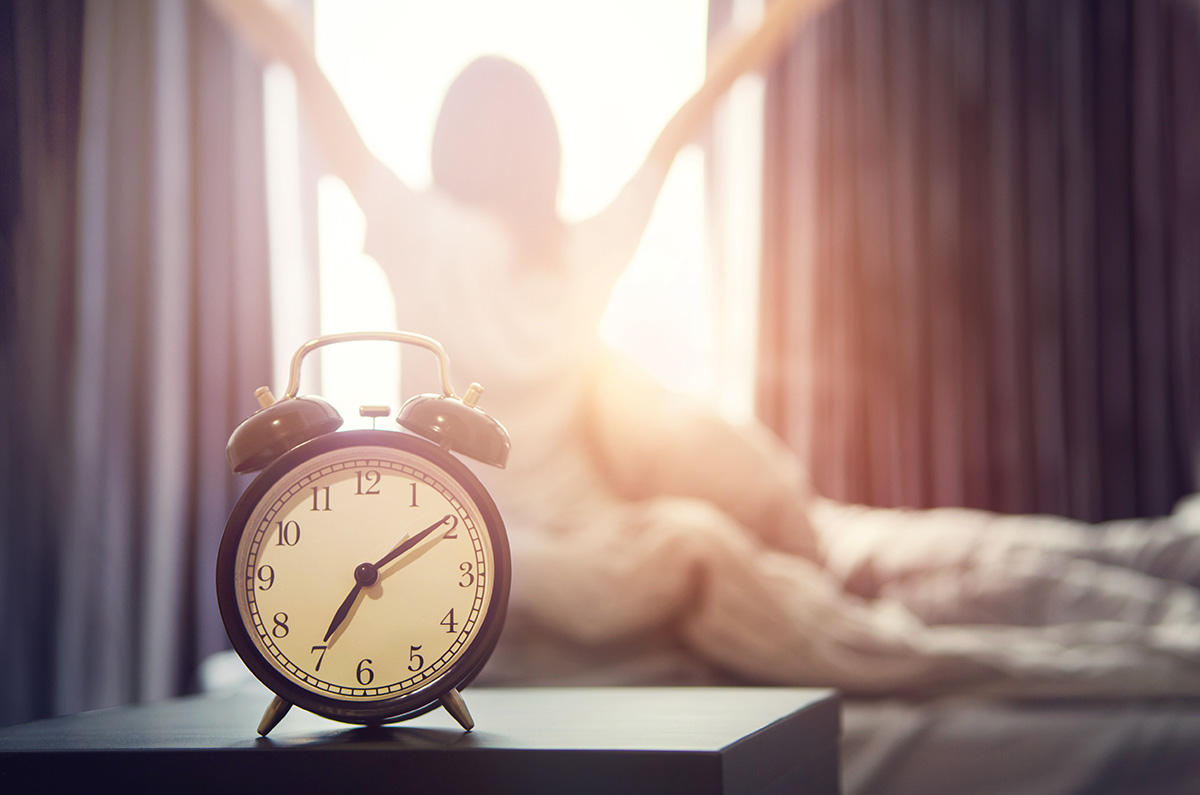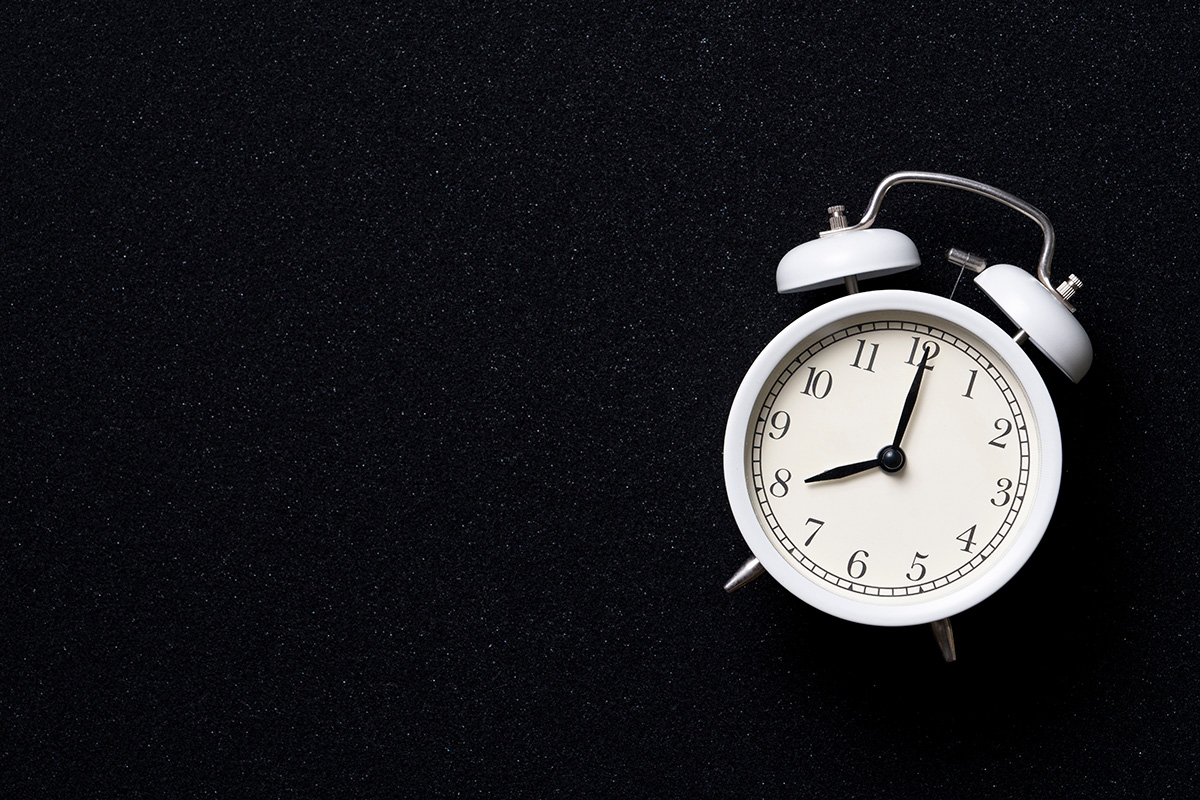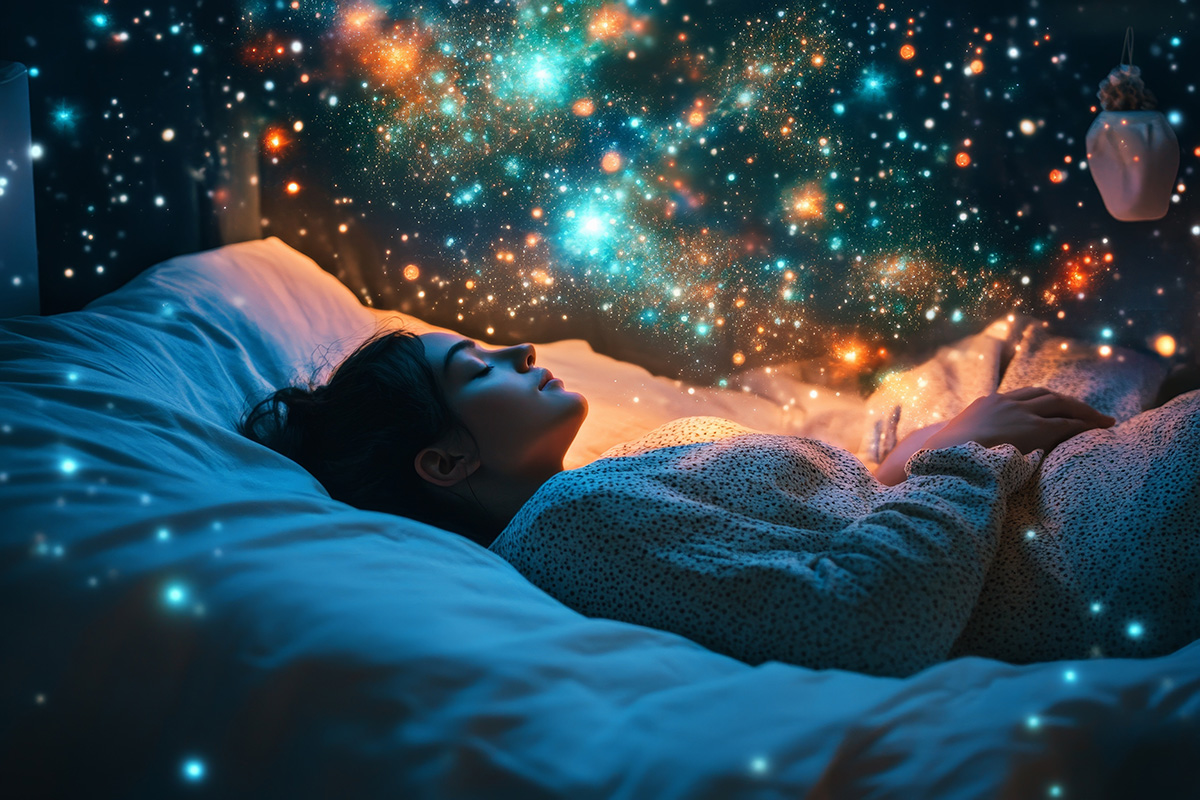Many, many people can’t sleep through the night. Some people wake up at 3am and can’t fall back to sleep for hours, some people wake up super early like 5am and once they are up, that’s it. Still others need 1-2 hours just to fall asleep initially and some wake up feeling like they haven’t slept at all, even if it’s been 10 hours. Furthermore, so many think waking up for an hour in the middle of the night is normal? Some need the TV on all night other wise they can’t sleep at all. So, what’s got us so twisted up and restless during what should be the easiest and sweetest part of our lives?
The rule of thumb from a Chinese medicine point of view is that adults need 8 hours of sleep. Obviously babies and teens need more and most seniors seem to get less, but as an average adult, we need 8 hours. Some people boast that they only need 4 or 5 hours and they feel great, we think it’s possible that they just forgot what ‘great ‘actually feels like.
Sleep is a time where our body relaxes, our muscles recover, we heal, we are reborn every single night. For our health, it’s one of the most important things we do.
What Are the Benefits of Getting a Good Night’s Sleep?
The benefits of a good night sleep are endless, but here’s the top seven..
- Boosts immune system
- Regulates metabolism
- Balances emotional wellness
- Decreases inflammation
- Reduces the risk of disease
- Increases memory and learning
- Increases collagen for skin moisture and elasticity
What Are Some Tips for a Better Sleep?
Here’s 6 areas that could need a little tweaking so you can get that good night’s sleep, every night.
Stick to the schedule
I’m sure you’ve heard it before, but a bedtime routine is essential. Staying with the same bedtime; give or take 30 min, does wonders for your circadian rhythm. Your circadian rhythm is a pattern throughout the day and night and is measured by cortisol. Cortisol is naturally high in the morning and lowest at night. For people with crazy schedules, like working graveyard one week and then swing the next, then days- and yes, I know people with this schedule. Cortisol is usually all over the place, but luckily most of us have more predictability. With a predictable rhythm and pattern in place, the brain gets the signal and responds by releasing those lovely and very effective hormones to help us drift off easier.
Tip: If you are curious what your circadian rhythm looks like, we can assess your cortisol through saliva testing, and out of those results, choose some herbal remedies and supplements that can help support the rise and fall of Cortisol at the desired time. Please note, Western MDs do measure Cortisol as well but with a blood test, unfortunately this does not give us enough info about the rhythm, since saliva testing is done at four intervals throughout the day, it’s the best choice.
Not Too Hungry , Not Too Thirsty
We all know we shouldn’t drink too much water before bed since that only leads to getting up in the middle of the night to urinate. But we also don’t want to be too hungry or too full. If we are hungry, the brain has a hard time settling. Too full and the liver works overtime during the night, waking us up. And as for caffeine and alcohol, beware! Caffeine actually sticks around up to 10 hours after you’ve consumed it, so if you are having a 3pm pick-me-up that might be the culprit to keeping you up until 1am. (Read more about the bigger picture on caffeine). As for alcohol, the initial effects might make you sleepy, but afterwards many patients report waking up between 1am-3am. Makes total sense to us, that is the block of time when the liver organ is working its hardest processing toxins and the day’s stress (each organ in the body gets its own 2 hour window). In addition, women who are approaching menopause reported that alcohol always made sleep horrible and night sweats outrageous. So, beware.
Tip: Eat a spoonful of a nut butter before bed, drink a glass of Natural Calm or eat a little bit of a raw potato. Yes, patients have said all these work, some better than others depending on the person. Go caffeine and alcohol free for a month and see what happens.
Your Environment Matters
I think we know all the things; blackout shades, eye mask, ear plugs, a mattress that is less than 10 years old, the perfect pillows dependent on if you are a back or a side sleeper and lastly, turn off those screens! All of those are so true and we think the biggie are those screens, including TVs. Screens are noise, distraction and entertainment and it keeps the eyes full and the mind busy. But the biggest reason, blue light powerfully suppresses melatonin which is necessary for sleep. Here’s a short article from Harvard talking about the Dark Side Of Blue Light. They recommend getting off screens for 2-3 hours before bedtime, but let’s be honest, even I love to scroll through Instagram before bed, so I try to get off about an hour before. As for TV, not only does it emit blue light but if you’ve fallen asleep, chances are there is audio playing for hours and possibly all night. It’s just not conducive to sweet dreams or deep sleep.
Tip: Not only turn off those screens an hour before bed, but put your phone on airplane mode as well. Most of us have our phones charging on the night table next to us or in the bed, did you know that your phone looks for a cell phone tower to connect to every 30 minutes? And if you’re on WIFI, the Electromagnetic Rays (EMR) are equivalent to standing in front a microwave all night, certainly not what we want.
Slow the Brain Down and Let the Melatonin Flow
Get still, get quiet! It’s hard to go from on to off so quickly. The best transition tool is meditation. The list of benefits of meditation is long, but at the very least you can use it as a tool to transition to sleep time. There’s so many apps now. Calm is great; Sleep Stories and Meditation. Headspace seems to be the most popular with a huge library. The lesser known Insight Timer happens to be my current favorite, in fact I love it so much, I just signed up to become a teacher. They truly have a little bit of everything from Buddhist lectures, Binaural Beats, Breath work, Sleep Nature Sounds and lots of meditations all for free. To check out my profile on Insight Timer.
Maybe meditation is not your thing, so check out the Tapping Solution app, there’s tapping techniques for everything including sleep. If you’re not ready to commit to the app, YouTube has quite a few tapping exercises for free as well. Technology has made it impossible not to meditate.
Tip: Meditation is your friend and tapping is very effective.
Is Snoring the Culprit?
We’ve found that some patients are sleeping the right amount of time, but still waking up feeling tired! We think snoring or sleep apnea could be the issue. If you aren’t sure if you snore, I recommend getting the Snore Lab app, an app that records and rates your snoring all night long. (And yes, it will still work if you put your phone on Airplane Mode) Not only informational, but quite funny to hear what you sound like snoring, it will definitely give you a giggle! If you scored high, we recommend seeing a professional about NightLase or having a sleep study to assess if a C-PAP machine might be right for you. C-PAP machines aren’t what they used to be, they literally save lives and marriages. Just be sure to have a custom mouthguard made if you are using a C-PAP machine because nightly pressure on the teeth and gums can cause some dental issues.
Tip: Check out the Snore Lab app, for useful information and a good laugh.
What do you dream of?

Dreams are messengers. What are your dreams trying to tell you? Leave out the characters, locations, even what was actually happening in the dream, only consider how you felt. What are the most common emotions that come up for you during your dreams? That will tell you a lot. We think dreams are the body’s way of giving us clues as to what’s really happening behind the scenes, something unsaid, not processed, not digested. If you’ve got a lot of pent up emotions, journaling or ‘downloading’ as I like to call it, might be a wonderful tool for you. Grab a journal and free write, just get the pen moving and do not stop, it doesn’t matter if the words make sense or not. Just go! I’ve found that if I’m up worrying or my dreams are stressful, free writing is a great way to download the day so I can rest deeper.
Tip: Free write before bed, get curious and see what comes out.
Try a few or all of the above and see what changes, if you are still struggling don’t hesitate to come and see us in the office. Both acupuncture and Chinese herbal medicine are amazing remedies for sleep issues.

